Kougioumtsidis repeats as U23 European champion
Saturday, March 18, 2023 - 19:26 By Vinay Siwach

BUCHAREST, Romania (March 18) -- Between his U23 European title last year and today, Georgios KOUGIOUMTSIDIS (GRE) has managed only one gold medal -- the senior European gold in Budapest. He failed to win a medal in the last five events he has wrestled.
However, he ended that drought by reaching the 79kg final for the second year on the trot at the U23 European Championships on Friday and defended his title in a thrilling gold medal bout against U23 world champion Vladimeri GAMKRELIDZE (GEO).
Kougioumtsidis wasn't as aggressive as he was last year. Yet, he found ways to deal with tricky situations and score when it mattered most. Gamkrelidze clearly dominated the tournament with two technical superiority wins before the final which he at one point led 4-0.
But Gamkrelidze should have accepted that it won't be this simple with Kougioumtsidis. He gave up three points before both wrestlers separated for the break.
When the bout resumed, it was a little surprising that Kougioumtsidis did not show intent. He was warned for passivity, however, he did enough to avoid the second call.
With 15 seconds remaining on the clock, it was now or never for Kougioumtsidis, who never has the slightest worry on his face.
He went for three fakes before a half-hearted duck-under which forced Gamkrelidze to transfer his balance to the front and he did not see Kougioumtsidis changing his attack to a single leg. The Greek wrestler elevated his leg and moved behind Gamkrelidze to bring him down.
It looked like a half throw but was good enough for two points and a 5-4 lead with four seconds remaining. Georgia challenged the call but lost, winning Kougioumtsidis a 6-4 win.
Last year, Kougioumtsidis won the U23 Euros and a month later won the senior continental title as well. The senior Europeans are a month away from Saturday, a day on which Kougioumtsidis won his second U23 Euro title.

Another defending champion won gold as Islam ILYASOV (AZE) went past Oktay CIFTCI (TUR), 6-1, in the 97kg final.
The gold medal bout began on a very slow note with Ilyasov picking up a point for Ciftci's passivity after two minutes. He added a takedown and gut wrench before the break to lead 5-0.
As he tried defending his lead in the second period, Ilyasov was called passive and he gave up a point after 30 seconds but that did not cause much harm.
Ciftci dragged Ilyasov out of bounds but the referee called it neutral and did not give any point. Turkiye challenged the call but lost to add another point to Ilyasov's score.
The last 30 seconds did not yield any more points and U23 world bronze medalist Ilyasov won his second gold and third medal overall at U23 European Championships.
 Niklas STECHELE (GER) tries to score on Tolga OZBEK (TUR) in the 57kg final. (Photo: UWW / Kadir Caliskan)
Niklas STECHELE (GER) tries to score on Tolga OZBEK (TUR) in the 57kg final. (Photo: UWW / Kadir Caliskan)
It was not defending champion Horst LEHR (GER) but Niklas STECHELE (GER) made sure the 57kg U23 European gold medal remains in Germany.
Stechele, like Horst, claimed the gold medal in a low-scoring final against Tolga OZBEK (TUR) and won by a score of 4-2.
Ozbek opened the final with a low single which Stechele managed to fend off before going on one of his own. After a little scramble, he managed to score a takedown and lead 2-0.
A little later, Ozbek once again tried to get hold of Stechele's leg but failed. His weak positioning cost him another two points as Stechele went for the counter and scored.
A crotch lift just before the break made it 4-2 but Ozbek was still trying to find a way to break Stechele's defense which became even stronger in the second period.
Stechele gave a little throwback to Lehr's tactics in the final last year as he completely shutdown in the second period, just like his senior. Despite Ozbek getting on a couple of shots, Stechele gave up no points and won the gold medal 4-2.

At 70kg, a new star was born as Magomed KHANIEV (AZE) announced his arrival at the international scene with the U23 European Championships gold medal.
Wrestling against Hayk PAPIKYAN (ARM) in the final, Khaniev was slow to start and only led 1-0 at the break. But he cut loose in the second.
Papikyan tried avoiding a leg grab but fell on his back which gave Khaniev four points and he dragged him out of bounds with exposure to lead 7-0.
Armenia challenged the four point call but it stood, adding one more point to Khaniev's account. Khaniev finished the bout with a duck under and captured the gold medal.
Interestingly, Khaniev is the younger brother of 2019 U17 world champion Mukhamed KHANIEV (RWF).
Khamzat ARSAMERZOUEV (FRA), who won all his three bouts 10-0 on Friday, was crowned as the U23 European champion at 65kg after his opponent Rashid BABAZADE (AZE) forfeited due to injury.
Although he did not get to wrestle, Arsamerzouev became the first French freestyle wrestler to win a gold medal at the U23 Europeans.
RESULTS
57kg
GOLD: Niklas STECHELE (GER) df. Tolga OZBEK (TUR), 4-2
BRONZE: Luka GVINJILIA (GEO) df. Thomas EPP (SUI), 5-0
BRONZE: Edik HARUTYUNYAN (ARM) df. Nuraddin NOVRUZOV (AZE), 13-2
65kg
GOLD: Khamzat ARSAMERZOUEV (FRA) df. Rashid BABAZADE (AZE), via inj. def.
BRONZE: Goga OTINASHVILI (GEO) df. Hamza ZOPALI (TUR), via fall
BRONZE: Mykyta HONCHAROV (UKR) df. Bozhidar DZHOROV (BUL), 6-0
70kg
GOLD: Magomed KHANIEV (AZE) df. Hayk PAPIKYAN (ARM), 10-0
BRONZE: Davit PATSINASHVILI (GEO) df. Benedikt HUBER (AUT), 10-0
BRONZE: Shamil USTAEV (GER) df. Moukhammad SANGARIEV (FRA), 4-2
79kg
GOLD: Georgios KOUGIOUMTSIDIS (GRE) df. Vladimeri GAMKRELIDZE (GEO), 6-4
BRONZE: Sabuhi AMIRASLANOV (AZE) df. Narek GRIGORYAN (ARM), 4-1
BRONZE: Eugeniu MIHALCEAN (MDA) df. Gigi SUBTIRICA (ROU), via fall
97kg
GOLD: Islam ILYASOV (AZE) df. Oktay CIFTCI (TUR), 6-1
BRONZE: Ertugrul AGCA (GER) df. Richard VEGH (HUN), 10-0
BRONZE: Radu LEFTER (MDA) df. David MCHEDLIDZE (UKR), 3-2

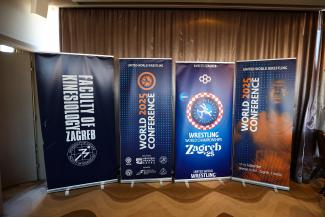
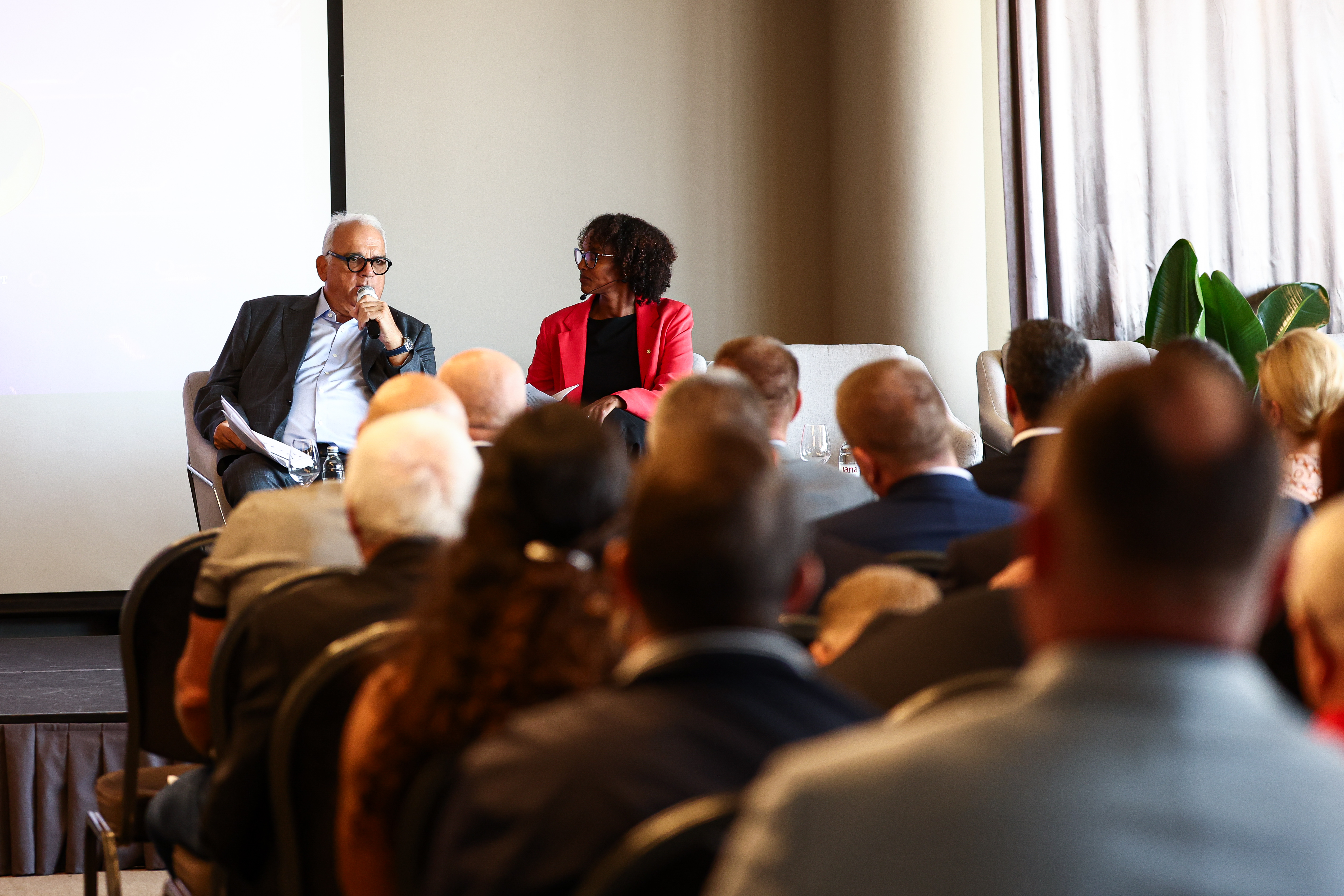 United World Wrestling President Nenad LALOVIC at the World Conference. (Photo: United World Wrestling / Jake Kirkman)
United World Wrestling President Nenad LALOVIC at the World Conference. (Photo: United World Wrestling / Jake Kirkman)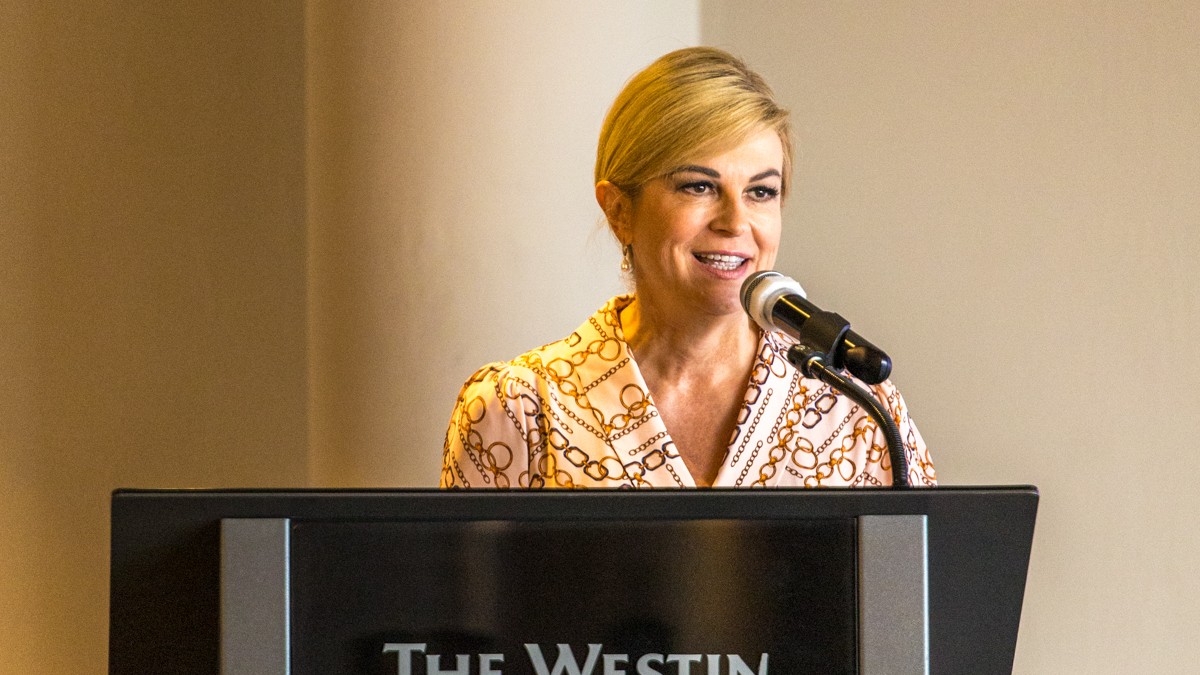 International Olympic Committee member and former President of Croatia Kolinda GRABAR-KITAROVIC.
International Olympic Committee member and former President of Croatia Kolinda GRABAR-KITAROVIC.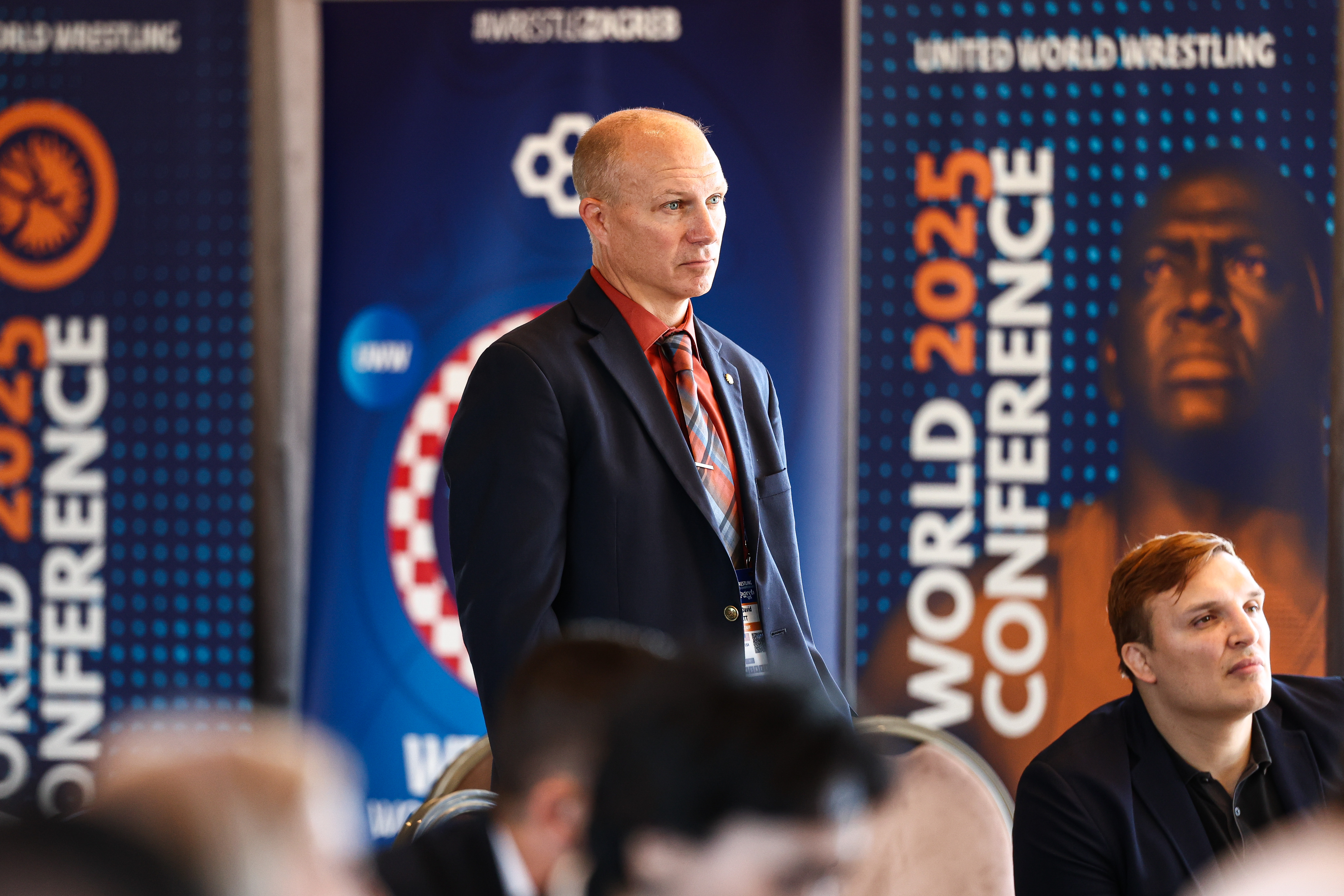
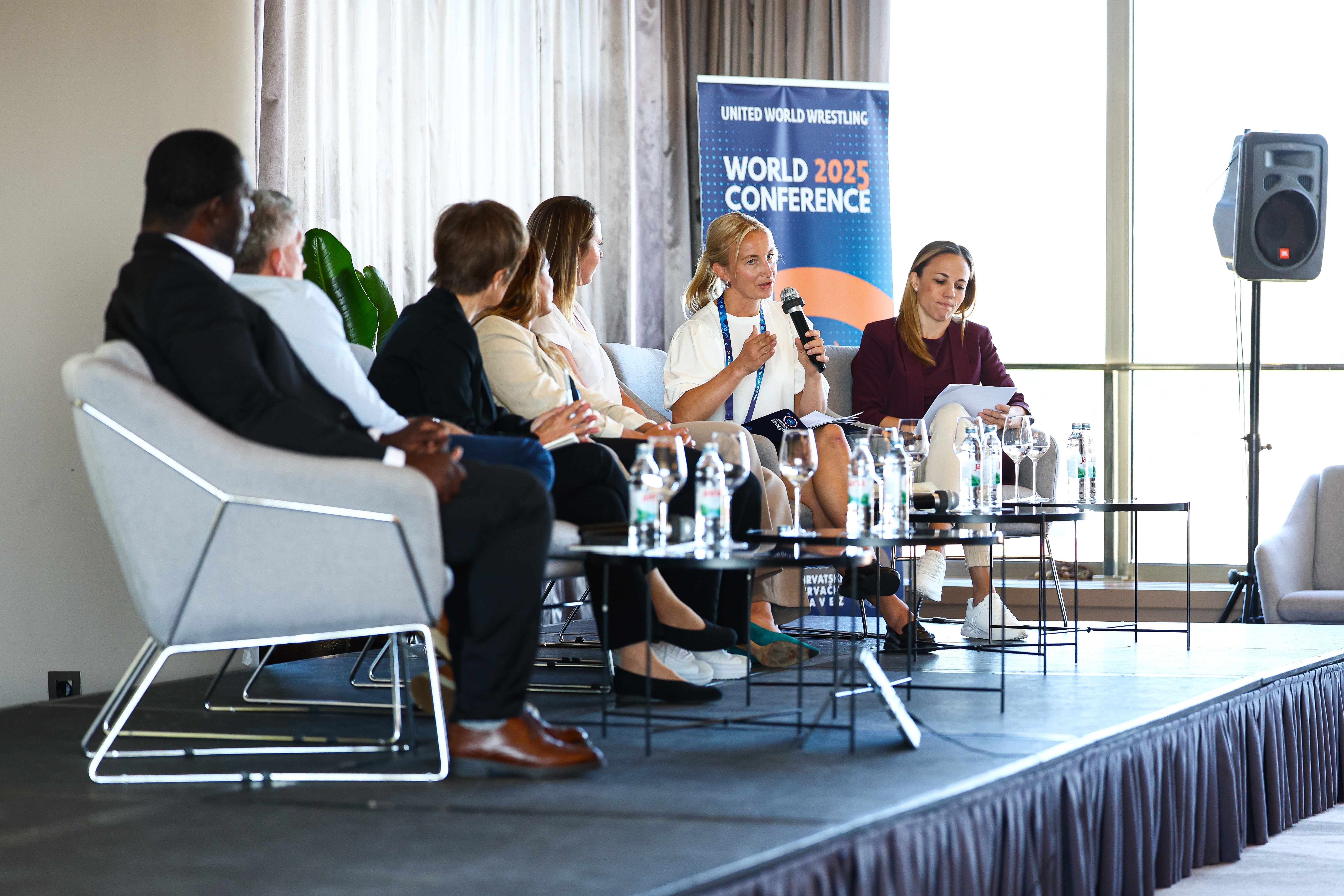
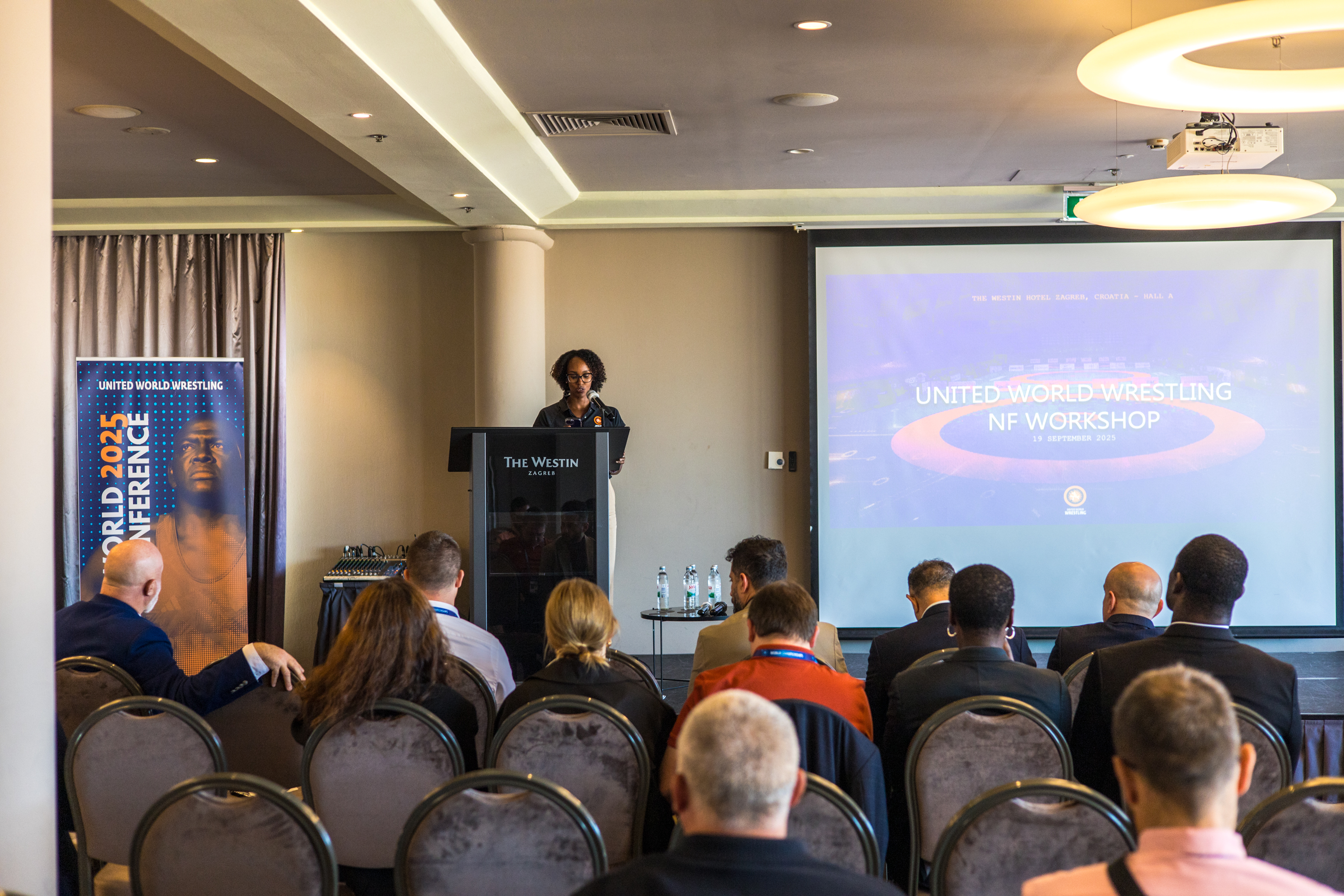 A national federation workshop organized by United World Wrestling in Zagreb.
A national federation workshop organized by United World Wrestling in Zagreb.
Share your thoughts.
Comments